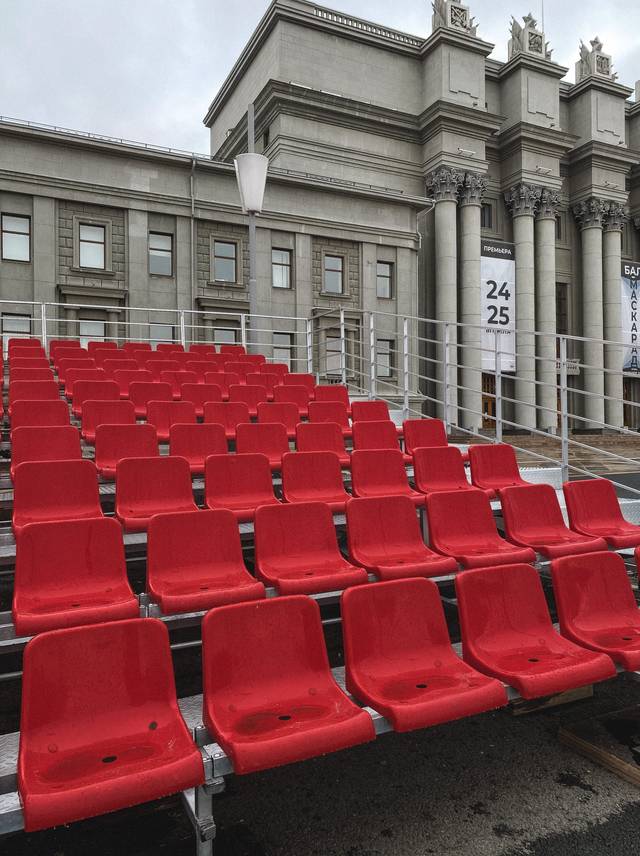
Alumni on the Move
A question of power: The gradual exclusion of women and minorities from Gambian politics
Systems that have the power to affect the lives of marginalised minorities should have these groups represented within their ranks. Isatu Bokum (The Gambia and UCT 2021) writes about the troubling state of minority representation in the Gambian National Assembly.
The Gambia held its National Assembly Elections on April 9, 2022. The National Assembly is undoubtedly the most powerful institution in any democracy, making this one of the most crucial elections. An essential element of a democratic parliament is that it represents the diversity in its population, in terms of gender, language, religion, ethnicity etc. However, after the election results, I have no doubt that this definition is not in line with the diversity of our current National Assembly.
There was a total of 53 elected parliamentary members. The number does not include minority groups such as people living with disabilities or Christians. In addition, out of the 19 women who stood for National Assembly seats, only three were elected. The situation is exacerbated by the fact that only 6% of women are represented in the National Assembly, even though the Gambia’s population is 51% female. Women, persons with disabilities, and minorities must be given full access to governance and decision-making to achieve a more effective democracy and sustainable development.
To this end, an open letter was written by Civil Society Organisations to the President of The Gambia urging him to ensure fair representation at the National Assembly to ensure the integrity of the Assembly. In line with the 1997 constitution of The Gambia, section 88(1)(b) grants His Excellency Adama Barrow the power to nominate five members of the National Assembly to ensure that minorities that might not have been elected are represented in the Assembly. However, this letter amounted to nothing. The President has announced his nominees for the Assembly. Three men and two women are part of it, but Christians, people with disabilities and other minority groups are not represented. To make matters worse, two of the nominees Fabakary Jatta and Seedy Njie are staunch supporters of former president Jammeh (who held the presidency for 21 years) and rallied actively behind him during the 2016 election impasse to keep him in power. This is all the more galling considering that Fabakary Jatta and Seedy Njie were elected Speaker and Deputy Speaker of the National Assembly, respectively.
In some countries, there are specific measures to ensure the representation of women and minorities in Parliament. This is accomplished through special elections, appointments, reserved seats, or quotas in some cases. For instance, Djibouti reserves 10% of its seats to women, India 33%, and Tanzania 20%. Fatoumatta Njai, one of the three elected female parliamentarians, attempted to do this earlier this year by introducing a private member's bill seeking to amend Section 88 of the 1997 Constitution. The bill would have increased the representation of women in the National Assembly. As a result, two seats would be reserved for women in each of the seven regions, bringing the National Assembly membership from 58 to 71. This would have meant that fourteen seats would have been reserved for women, plus two seats for persons with disabilities. If this bill had passed, there would have been at least 22% women in the Gambia's Parliament.
The bill was not passed on the third reading (voting stage) as there was no quorum. Section 226 of the constitution stipulates those 42 members of Parliament must be present for a vote to take place. However, during the voting session on February 21 2022, only 32 Parliamentarians were present. In my opinion, the lack of quorum in the National Assembly reflected a deliberate decision not to pass a bill that would promote a nearly equal representation of women in the National Assembly. The lesson here is that women, people with disabilities, and minorities have long been marginalised in politics and that increasing their participation has been counterproductive.
Assigning a minimum number of seats to a reserved group is viewed by some as tokenism, creates a glass ceiling and, shifts political parties' obligations toward tackling inequality. However, women and minority groups in places like The Gambia are not highly ranked on the candidate lists of political parties. Political parties are therefore not doing enough to bridge the gap.
Democracies are characterised by a diverse population represented in their parliaments. A non-representative parliament has the potential to undermine the stability of the democratic system by reducing or excluding them from participation in any political process. Now envision a parliament with only three women elected, two nominated, and no persons with disabilities or minorities represented. If women and other minorities do not have equal representation in parliament, their voices and perspectives cannot be fully represented. As a result, laws will be passed that are against their interests.
What steps should be taken to ensure a genuinely inclusive parliament? It would be great if the Private Member Bill is reintroduced and passed in the next few years. If this is not feasible, the double quota system should be implemented. The parties' candidate lists have to include minimum numbers of candidates from under-represented groups. The law should also ensure that women have a fair representation in party lists by requiring all parties to include women on their lists and in electable positions. Perhaps this will dramatically change the lives of women, people with disabilities, and minorities in The Gambia.







